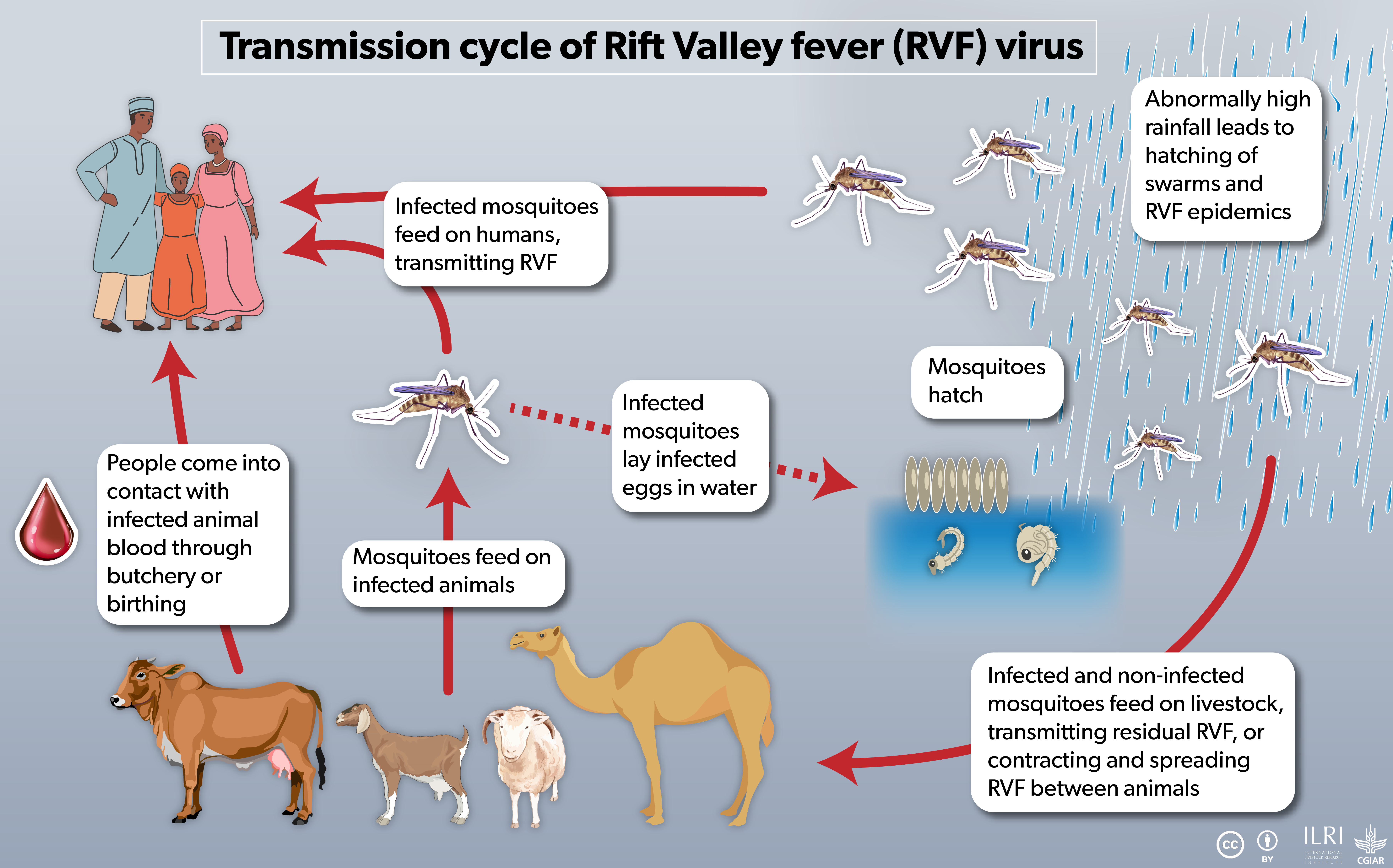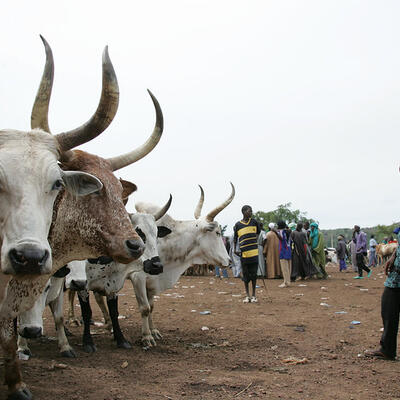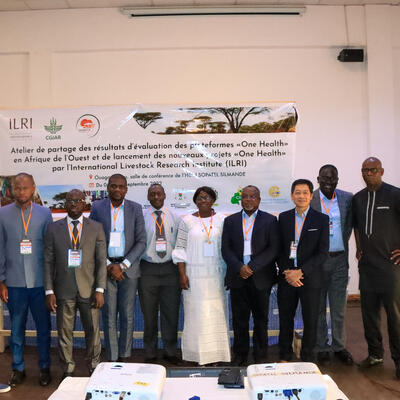

Building resilience: Community-led response to Rift Valley fever in Isiolo County, Kenya
Kenyan authorities issued an alert for Rift Valley fever (RVF) on 24 January 2024 following the confirmation of a human case in Marsabit County, spurring preparations in neighbouring Isiolo County.
Rift Valley fever is a mosquito-borne zoonosis primarily affecting domestic animals, such as sheep, goats and camels. Humans can be infected by direct or indirect contact with the blood or body fluids of infected animals. In humans the disease ranges from a mild flu-like illness, to a severe haemorrhagic fever that can be lethal in about 50 per cent of patients. When livestock are infected, the disease can cause significant economic losses due to high mortality rates in young animals of up to 100 per cent, and waves of abortions in pregnant females.

RVF transmission cycle (illustration credit: ILRI/Annabel Slater).
Ibrahim Kanata and Hadija Ali Halkan, a community disease reporter and a community health volunteer respectively, stood ready in Isiolo County to raise public awareness about RVF transmission, prevention and early detection of symptoms to protect their communities from the outbreak. Their readiness stemmed from a rigorous 3-day training that was led by Isiolo County One Health Unit, and the Department of Veterinary Services, Isiolo County with support from the One Health Research, Education and Outreach Centre in Africa (OHRECA) at the International Livestock Research Institute (ILRI).
Held on 26-28 September 2023, the training equipped 21 individuals including community disease reporters, health volunteers, and environmental scouts, with essential skills to address One Health issues—health cases at the animal-human-environmental interface—and enhance knowledge on antimicrobial resistance, zoonoses and disease surveillance in humans and animals.
Community training session in Merti, Isiolo County, Kenya (photo credit: ILRI/Geoffrey Njenga).
Prior to the training, a needs assessment was conducted in collaboration with the Isiolo County One Health Unit. This groundwork identified priority zoonotic diseases and laid the foundation for tailored interventions. Two ‘trainer of trainers’ sessions were held in 2022 and in September 2023, equipping 21 trainers with the necessary expertise.
Areas vulnerable to RVF outbreaks held community trainings. These included Kinna, Garbatula, Merti and Sericho areas in Isiolo County, and engaged 120 community members and empowered them to spread information on identifying, preventing and controlling zoonotic diseases.
But preparations did not stop there, as there is an effective animal vaccine for RVF. Before the rains and subsequent outbreak of disease-carrying mosquitoes, the Department of Veterinary Services in Isiolo administered vaccinations to 135,342 animals from 5 August to 5 September 2023, with support from ILRI.
ILRI also tested 128 animals in the Marsarbit outbreak to analyse the strain of the virus using polymerase chain reaction (PCR) testing, which will help to track the passage of the disease.
Isiolo County's adoption of a One Health approach underscores its commitment to safeguarding human health and pastoral livelihoods. By integrating disease prevention with early detection and response mechanisms, the county aims to mitigate the impact of outbreaks on its communities.
Efforts to combat RVF extend beyond conventional methods. Enhanced public awareness campaigns and targeted education initiatives serve as vital tools to mitigate transmission risks and ensure early symptom detection. Recognizing the broader socioeconomic implications of RVF, stakeholders are urged to prioritize sustainable interventions that promote resilience and community well-being.
With the Kenya Meteorological Department's alert predicting above-average rainfall in March, April and May 2024, Isiolo communities are now better prepared to confront potential RVF outbreaks. Their efforts show that by leveraging technological advancements and community engagement strategies, stakeholders can bolster their resilience against emerging health threats.








